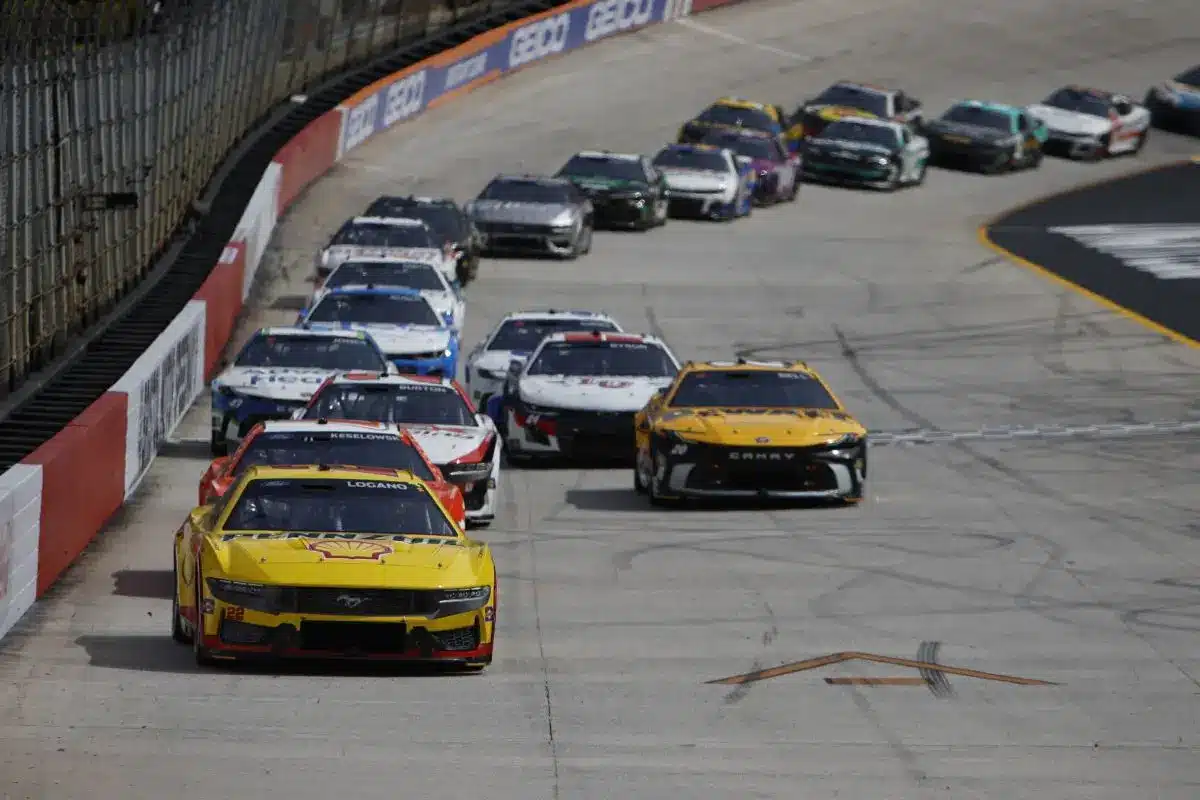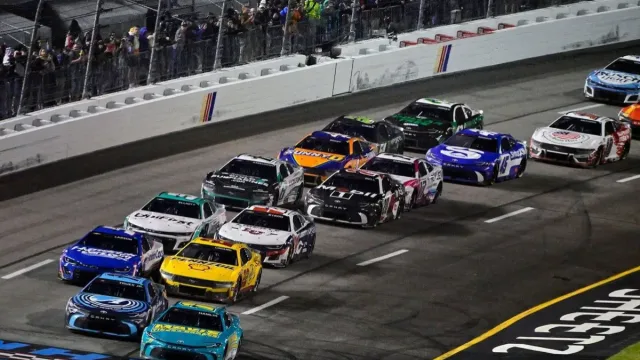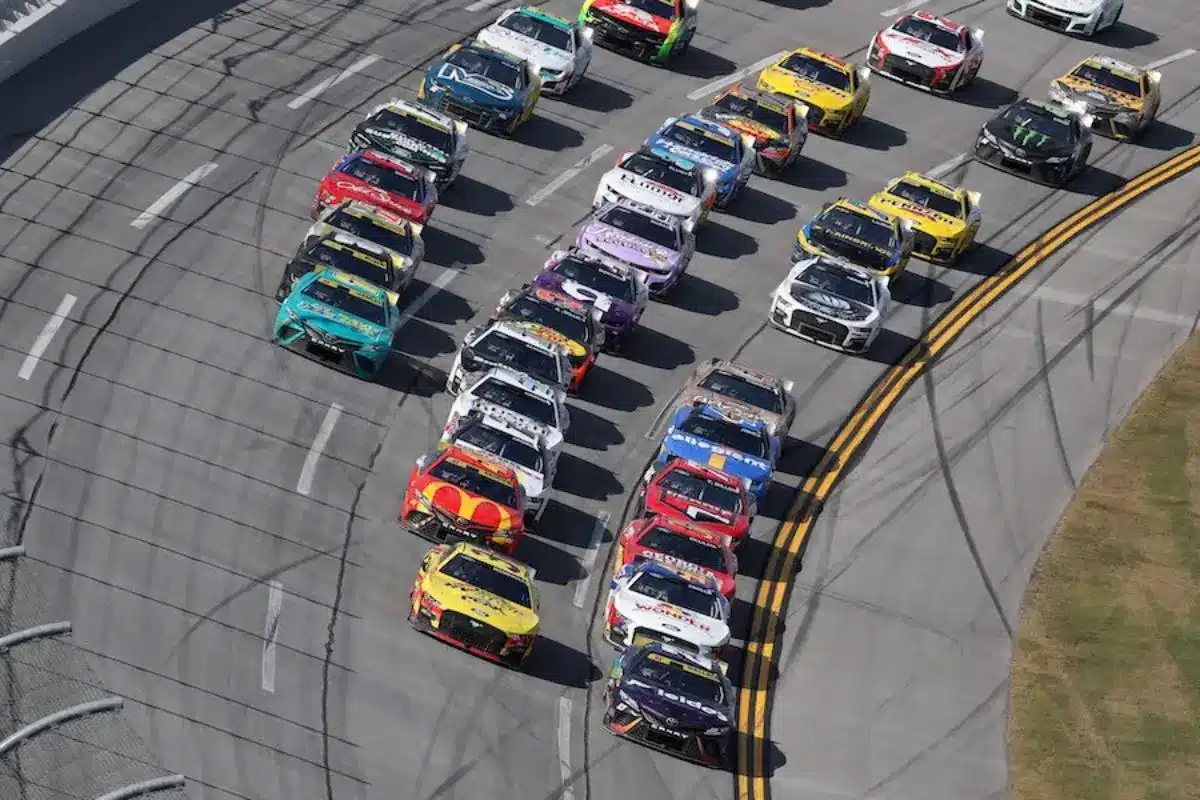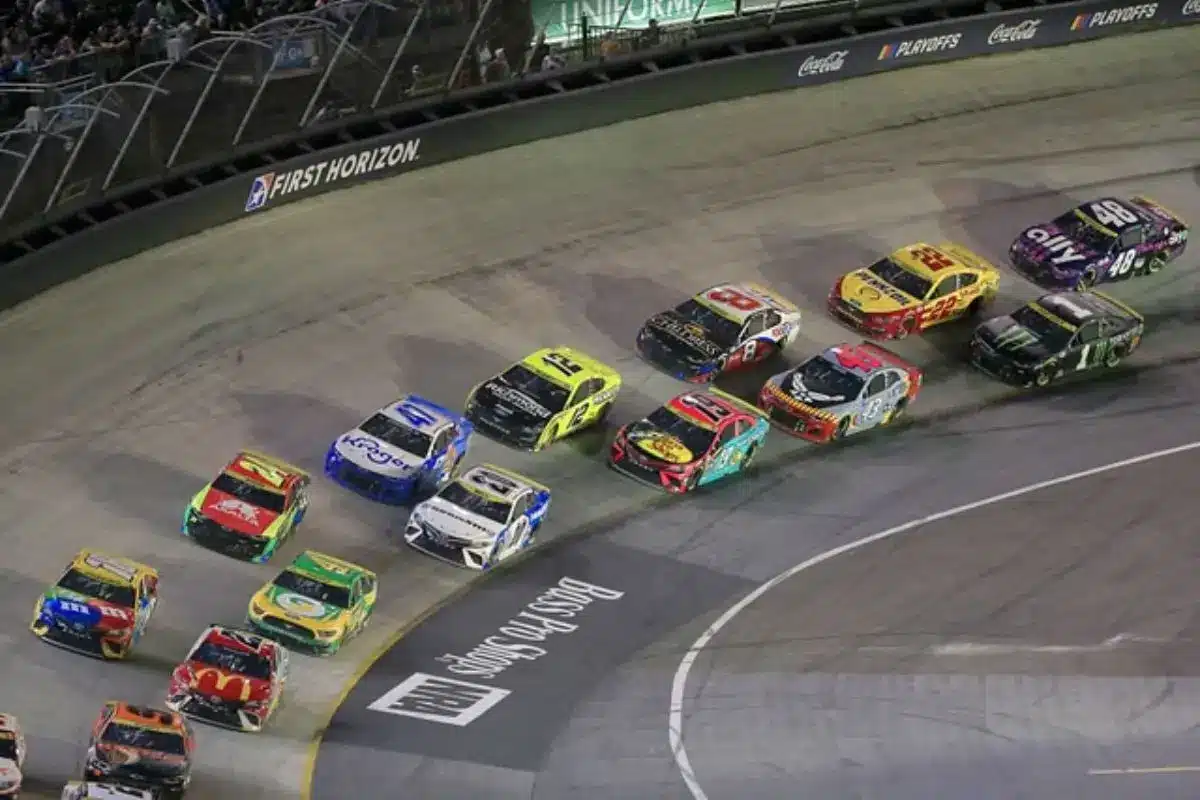NASCAR Announces New Rule for the 2025 season to address concerns over manufacturer manipulation and collusion. This rule aims to improve accountability among manufacturers, imposing penalties for actions that undermine the integrity of the sport. Recent incidents, especially at Martinsville, highlighted the need for such measures, where drivers were observed executing coordinated strategies to influence race outcomes.
Key Highlights
- A new rule effective in the 2025 season targets manufacturer accountability and aims to enhance competitive fairness in NASCAR.
- The rule addresses concerns about race manipulation and collusion among manufacturers, which have historically been insulated.
- Recent incidents, like the Martinsville event, highlighted the need for stricter measures against coordinated strategies among drivers from the same manufacturer.
- NASCAR officials reaffirm commitment to integrity and will impose penalties on manufacturers for actions undermining the sport’s fairness.
- Future violations will result in significant repercussions for all parties involved, stressing the importance of compliance and a level playing field.
NASCAR Announces New Rule for Manufacturer Penalties in 2025
NASCAR has officially introduced a new rule set to take effect in the 2025 season, which will empower the organization to impose penalties on manufacturers for actions deemed detrimental to the integrity of the sport.
This notable regulatory change is a response to growing concerns regarding race manipulation, particularly exemplified by recent incidents involving teams aiding their manufacturer teammates in critical playoff scenarios.
Historically, NASCAR has focused penalties on drivers and teams, leaving manufacturers largely insulated from direct repercussions for their actions. This new rule aims to close that gap and establish accountability at the manufacturer level, thereby deterring collusion that undermines competitive fairness.
By enabling the sanctioning body to penalize manufacturers, NASCAR is taking a proactive stance against practices that could compromise the sport’s integrity.
The recent incident at Martinsville Speedway, where three teams were penalized for colluding to assist their teammates, highlighted the need for such a rule.
Although NASCAR was unable to penalize the manufacturers involved due to existing regulations, the introduction of this new guideline indicates a critical step in safeguarding the sport’s competitive spirit.
This rule is poised to reshape the landscape of manufacturer-team dynamics in NASCAR, ensuring that all entities within the racing ecosystem adhere to the principles of fair play.
As the 2025 season approaches, stakeholders will need to reassess their strategies and align their operations with this new framework, reinforcing NASCAR’s commitment to maintaining a level playing field.
Details of the Martinsville Incident
The recent Martinsville incident has brought to light the complexities of manufacturer involvement in race strategies, which ultimately prompted NASCAR to establish new regulations.
During the final stint of the Martinsville event, Chevrolet drivers Ross Chastain and Austin Dillon importantly refrained from overtaking their teammate William Byron. Instead, they engaged in side-by-side racing that effectively blocked competitors from mounting a challenge. This behavior was corroborated by radio communications indicating a coordinated strategy aimed at assisting Byron, who was vying for a championship spot.
In parallel, Bubba Wallace and the Toyota camp executed a similar, albeit controversial, strategy. On the final lap, Wallace slowed down, allowing Christopher Bell to pass. Bell’s action was crucial, as he required a single position to tie with Byron for the coveted Championship 4 spot.
The tiebreaker scenario, however, played a central role in the outcome. Following an official review by NASCAR, Byron was granted the final Championship 4 position, while Bell faced penalties for his actions, which included riding against the wall in Turns 3 and 4.
These incidents have raised considerable concerns about the implications of manufacturer alliances in competitive racing. The apparent coordination among teams raises questions regarding fairness and the integrity of the sport.
As NASCAR seeks to address these challenges, the Martinsville incident serves as a critical case study in the ongoing discourse about the balance between competition and manufacturer influence in stock car racing.
NASCAR’s Reaction and Statement on the Incident
Following the controversial events at Martinsville, NASCAR officials expressed a strong commitment to addressing the integrity of competition within the sport. Steve O’Donnell, NASCAR’s Chief Operating Officer, articulated the organization’s resolve to prevent any manipulation by manufacturers, emphasizing that existing rules would be utilized to uphold competitive fairness.
“We do have rules in the rule book where we can address it and we did,” O’Donnell stated, highlighting the proactive measures taken in response to the incident.
In a recent conference call with Original Equipment Manufacturers (OEMs), NASCAR highlighted its intentions for the future. O’Donnell confirmed that while current regulations may lack specific directives against such behavior, an extensive rule is forthcoming.
“Will we have a rule next year? 1,000%,” he asserted, indicating a decisive commitment to ensuring that all stakeholders are aware of the repercussions of any violations.
O’Donnell’s frank remarks also reflected his frustration with the Martinsville incident, which blemished what he described as one of the best races in the playoffs. His sentiment resonated throughout the NASCAR community, as he noted, “What I saw in Martinsville pissed me off, and it pissed everyone off at NASCAR.”
“We had a call with our OEMs where we were very clear about our intentions going forward. Do we have a rule right now where we could do something? We don’t. Will we have a rule next year? 1,000%. And they’re aware if anything happens this weekend, which it won’t, we will react.”
“I would argue before what we saw (it was) one of the best races we’ve seen in the playoffs, and it’s unbelievable that we’re sitting here talking about this topic,” O’Donnell said Friday in his State of the Sport address. “I’ll probably get in trouble for saying this, but I’ll say it anyway. I’ve been around a long time. But Bill France used to say being pissed off is not a plan.”
“What I saw in Martinsville pissed me off, and it pissed everyone off at NASCAR. Because we all know better, and we know what happened.” – Steve O’Donnell
This collective disappointment emphasizes a critical moment for NASCAR as it seeks to restore trust and integrity in its competition. As the organization prepares for the 2025 season, its efforts will be keenly observed by fans, teams, and manufacturers similarly.
Warnings and Future Repercussions
How will NASCAR guarantee compliance and maintain the integrity of competition in view of recent controversies?
In light of recent incidents, NASCAR has taken a decisive stance against potential manipulation by manufacturers, emphasizing the necessity of maintaining a level playing field. Following recent penalties imposed on teams, NASCAR officials have engaged in direct communication with Original Equipment Manufacturers (OEMs) to highlight expectations moving forward.
During a scheduled meeting with drivers, NASCAR will address the implications of the recent events and communicate a clear warning. NASCAR’s Executive Vice President, Steve O’Donnell, articulated that while the drivers are ultimately responsible for their performance on the track, they are often influenced by directives from their teams.
“The reason we chose not to penalize the drivers (is) the drivers are holding the wheel, but the drivers are told essentially what to do, We gave them the benefit of the doubt. Saturday’s message from Elton [Sawyer] and John [Probst] to the drivers will be: that’s your warning.”
“We know what happened, and going forward, we’ll have to penalize you as well. But what do our words mean? We’re not going to let people — drivers, teams, OEMs, anyone — challenge the integrity of the sport.” – Steve O’Donnell
Acknowledging this, NASCAR has opted not to penalize the drivers at this stage, viewing it as crucial to provide them with a cautionary message instead.
However, O’Donnell made it abundantly clear that this leniency is not a permanent fixture. The warning serves as an initial step, and future infractions will not be treated lightly.
NASCAR’s commitment to preserving the integrity of the sport means that any further violations will result in considerable repercussions for all involved parties, including drivers, teams, and OEMs.
The organization aims to reinforce its zero-tolerance policy regarding manipulation, ensuring that competitive integrity remains paramount as NASCAR approaches the 2025 season and beyond.

News in Brief: NASCAR Announces New Rule
The introduction of new rules by NASCAR for the 2025 season aims to address and prevent manufacturer manipulation, emphasizing the organization’s commitment to fair competition. The Martinsville incident served as a catalyst for these changes, prompting NASCAR to respond decisively.
By implementing warnings and outlining future repercussions, NASCAR seeks to maintain integrity within the sport and deter any potential misconduct among manufacturers. These measures reflect an ongoing effort to uphold the principles of equitable racing.
ALSO READ: Trackhouse Racing’s Appeal Rejected By NASCAR Panel as Penalties Stand Strong


